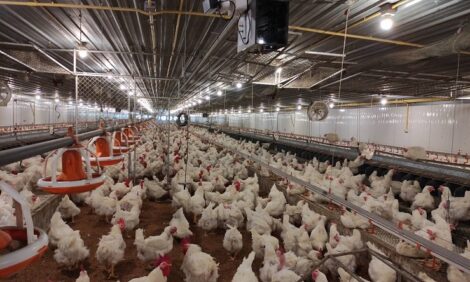



IPC Warns of Higher Poultry Prices, Global Feed Shortages
GLOBAL - The International Poultry Council (IPC) is concerned that the current world grain shortage caused by prolonged drought situation in the soybean and corn producing regions in the United States, coupled with excessive rains in Northern Europe, is having a significant impact on poultry meat production worldwide.Global commercial poultry production depends on feeds produced from corn, soy and other grains, all of which are important inputs. Because of the US drought, global corn and soybean supplies are insufficient.
Meanwhile, financial speculation has worsened the situation, sending corn and soy prices to record levels, as well as driving up the price of alternative feed crops, such as wheat. Moreover, poultry production consumes 44 per cent of the world's supply of food animal feedstuffs.
Given these circumstances, it is the view of the IPC that:
- The high prices of feed grains are pushing up the cost of producing commercial poultry. Poultry price increases are inevitable, which companies are forced to pass on to consumers to remain financially solvent. Further increases in the cost of grain will assuredly lead to additional cuts in production.
- Accordingly, governments should take whatever measures are available to prevent any further increases in grain prices. Poultry meat has historically been the world's cheapest large-scale source of animal protein, and has played a central role in providing consumers in poorer nations with access to protein. Continued high grain prices threaten food security, especially in low-income countries.
- Furthermore, authorities should discourage financial speculation involving feed grain prices. Such speculation by entities not directly tied to the food-producing sector has generated even stronger price volatility in the feed sector. Derivative markets should not be used to speculate financially for such an important commodity as food.
- Governmental policies that subsidize or encourage the production of renewable fuels from grains and cereals should be revised in order to avoid the risk of food shortages.








